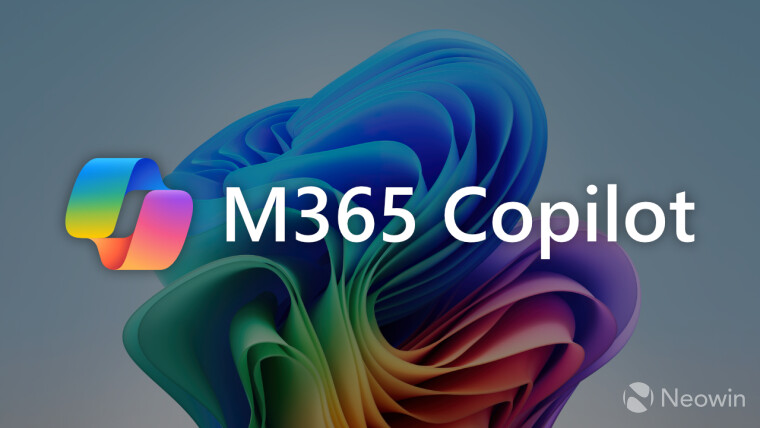The European Knowledge Safety Board has revealed an opinion addressing knowledge safety in AI fashions. It covers assessing AI anonymity, the authorized foundation for processing knowledge, and mitigation measures for impacts on knowledge topics for tech firms working within the bloc.
It was revealed in response to a request from Eire’s Knowledge Safety Fee, the lead supervisory authority underneath the GDPR for a lot of multinationals.
What had been the important thing factors of the steerage?
The DPC sought extra details about:
- When and the way can an AI mannequin be thought-about “nameless” — these which are not possible to determine people whose knowledge was utilized in its creation, and subsequently is exempt from privateness legal guidelines.
- When firms can say they’ve a “respectable curiosity” in processing people’ knowledge for AI fashions and, subsequently, don’t want to hunt their consent.
- The results of the illegal processing of non-public knowledge within the improvement part of an AI mannequin.
EDPB Chair Anu Talus mentioned in a press launch: “AI applied sciences might carry many alternatives and advantages to completely different industries and areas of life. We have to guarantee these improvements are finished ethically, safely, and in a means that advantages everybody.
“The EDPB desires to assist accountable AI innovation by making certain private knowledge are protected and in full respect of the Basic Knowledge Safety Regulation.”
When an AI mannequin will be thought-about ‘nameless’
An AI mannequin will be thought-about nameless if the possibility that private knowledge used for coaching shall be traced again to any particular person — both immediately or not directly, as by means of a immediate — is deemed “insignificant.” Anonymity is assessed by supervisory authorities on a “case-by-case” foundation and “an intensive analysis of the probability of identification” is required.
Nevertheless, the opinion does present an inventory of ways in which mannequin builders may reveal anonymity, together with:
- Taking steps throughout supply choice to keep away from or restrict the gathering of non-public knowledge, reminiscent of excluding irrelevant or inappropriate sources.
- Implementing robust technical measures to forestall re-identification.
- Guaranteeing knowledge is sufficiently anonymised.
- Making use of knowledge minimisation methods to keep away from pointless private knowledge.
- Usually assessing the dangers of re-identification by means of testing and audits.
Kathryn Wynn, a knowledge safety lawyer from Pinsent Masons, mentioned that these necessities would make it tough for AI firms to say anonymity.
“The potential hurt to the privateness of the particular person whose knowledge is getting used to coach the AI mannequin may, relying on the circumstances, be comparatively minimal and could also be additional decreased by means of safety and pseudonymisation measures,” she mentioned in a firm article.
“Nevertheless, the best way during which the EDPB is deciphering the regulation would require organisations to satisfy burdensome, and in some instances impractical, compliance obligations round objective limitation and transparency, specifically.”
When AI firms can course of private knowledge with out the people’ consent
The EDPB opinion outlines that AI firms can course of private knowledge with out consent underneath the “respectable curiosity” foundation if they’ll reveal that their curiosity, reminiscent of enhancing fashions or companies, outweigh the person’s rights and freedoms.
That is notably vital to tech corporations, as looking for consent for the huge quantities of information used to coach fashions is neither trivial nor economically viable. However to qualify, firms might want to go these three checks:
- Legitimacy check: A lawful, respectable purpose for processing private knowledge should be recognized.
- Necessity check: The information processing should be needed for objective. There will be no different different, much less intrusive methods of attaining the corporate’s purpose, and the quantity of information processed should be proportionate.
- Balancing check: The respectable curiosity within the knowledge processing should outweigh the impression on people’ rights and freedoms. This takes under consideration whether or not people would moderately count on their knowledge to be processed on this means, reminiscent of in the event that they made it publicly obtainable or have a relationship with the corporate.
Even when an organization fails the balancing check, it could nonetheless not be required to realize the info topics’ consent in the event that they apply mitigating measures to restrict the processing’s impression. Such measures embrace:
- Technical safeguards: Making use of safeguards that scale back safety dangers, reminiscent of encryption.
- Pseudonymisation: Changing or eradicating identifiable info to forestall knowledge from being linked to a person.
- Knowledge masking: Substituting actual private knowledge with pretend knowledge when precise content material will not be important.
- Mechanisms for knowledge topics to train their rights: Making it simple for people to train their knowledge rights, reminiscent of opting out, requesting erasure, or making claims for knowledge correction.
- Transparency: Publicly disclosing knowledge processing practices by means of media campaigns and transparency labels.
- Internet scraping-specific measures: Implementing restrictions to forestall unauthorised private knowledge scraping, reminiscent of providing an opt-out listing to knowledge topics or excluding delicate knowledge.
Know-how lawyer Malcolm Dowden of Pinsent Masons mentioned within the firm article that the definition of “respectable curiosity” has been contentious not too long ago, notably within the U.Okay.’s Knowledge (Use and Entry) Invoice.
“Advocates of AI counsel that knowledge processing within the AI context drives innovation and brings inherent social good and advantages that represent a ‘respectable curiosity’ for knowledge safety regulation functions,” he mentioned. “Opponents consider that view doesn’t account for AI-related dangers, reminiscent of to privateness, to discrimination or from the potential dissemination of ‘deepfakes’ or disinformation.”
Advocates from the charity Privateness Worldwide have expressed considerations that AI fashions like OpenAI’s GPT sequence may not be correctly scrutinised underneath the three checks as a result of they lack particular causes for processing private knowledge.
Penalties of unlawfully processing private knowledge in AI improvement
If a mannequin is developed by processing knowledge in a means that violates GDPR, it will impression how the mannequin shall be allowed to function. The related authority evaluates “the circumstances of every particular person case” however gives examples of doable issues:
- If the identical firm retains and processes private knowledge, the lawfulness of each the event and deployment phases should be assessed primarily based on case specifics.
- If one other agency processes private knowledge throughout deployment, the EDPB will take into account if that agency did an applicable evaluation of the mannequin’s lawfulness beforehand.
- If the info is anonymised after illegal processing, subsequent non-personal knowledge processing will not be liable to GDPR. Nevertheless, any subsequent private knowledge processing would nonetheless be topic to the regulation.
Why AI corporations ought to take note of the steerage
The EDPB’s steerage is essential for tech corporations. Though it holds no authorized energy, it influences how privateness legal guidelines are enforced within the EU.
Certainly, firms will be fined as much as €20 million or 4% of their annual turnover — whichever is bigger — for GDPR infringements. They could even be required to vary how their AI fashions function or delete them fully.
SEE: EU’s AI Act: Europe’s New Guidelines for Synthetic Intelligence
AI firms wrestle to adjust to GDPR as a result of huge quantities of non-public knowledge wanted to coach fashions, usually sourced from public databases. This creates challenges in making certain lawful knowledge processing and addressing knowledge topic entry requests, corrections, or erasures.
These challenges have manifested in quite a few authorized battles and fines. For example:
Moreover, in September, the Dutch Knowledge Safety Authority fined Clearview AI €30.5 million for unlawfully accumulating facial photographs from the web with out person consent, violating GDPR. That very same month, the Irish DPC requested the opinion be drawn up simply after it efficiently satisfied Elon Musk’s X to stop utilizing European customers’ public posts to coach its AI chatbot, Grok, with out acquiring their consent.






No Comment! Be the first one.